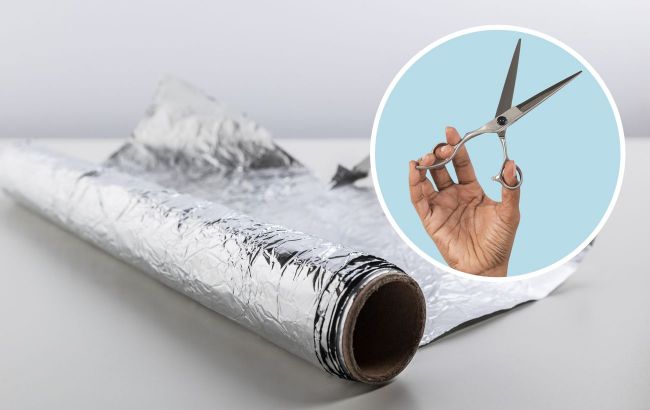Nutritionist explains under what conditions baking in foil can be dangerous
 Is it harmful to bake food in foil? (Collage by RBC-Ukraine)
Is it harmful to bake food in foil? (Collage by RBC-Ukraine)
Lately, there have been debates about whether aluminum foil is harmful to the body when used to cook or bake food.
This question is addressed by RBC-Ukraine with reference to a post on Instagram by Ukrainian nutritionist Snizhana Voroshylova.
Is foil harmful
The World Health Organization (WHO) considers the intake of aluminum to be safe at less than 2 mg/kg per week. For a person weighing 60 kg, this is less than 120 mg/week or less than 17 mg/day.
Excessive intake of aluminum from food concerns scientists because the metal is poorly excreted and can harm the nervous, muscular, and hematopoietic systems. Several connections are still being investigated (with Alzheimer's disease, Parkinson's disease, breast cancer).
Facts about foil
The leaching of aluminum occurs upon contact with food, especially when heated (temperature is more critical than duration) and at pH values below 4/higher than 8.5. Therefore, marinated products and foods baked in foil are at the top of aluminum contamination.
By the way, raw fish, meat, and eggs themselves contain Al
- Fish baked in foil: ~4.6 mg/kg (5 times higher)
- Marinated and baked fish in foil: ~49 mg/kg (49 times higher)
- Marinated and baked duck breast in foil: ~117 mg/kg (100 times higher)
- Unmarinated duck breast, baked in foil: 0.6 mg/kg
- Ham wrapped in foil in the refrigerator for 3 days: ~60 mg/kg, and cheese: ~20 mg/kg
- Fish absorbs aluminum better than meat due to its fiber structure
- The skin on meat protects it from aluminum penetration
- Salt enhances the leaching of aluminum into food, as does the addition of acid (such as tomatoes).
When foil can be harmful
Foil can be harmful if you frequently bake marinated products in it, use aluminum molds, or use aluminum cookware (such as a non-stick skillet with cracks from which aluminum leaches into the food).
Of course, foil is better suited for storing dry products than for cooking food.
When is foil safe?
- When you bake beets or potatoes in foil with the skin, which you later peel.
- When you bake unmarinated shank with the skin in foil (if you don't eat the skin afterward) or unmarinated meat without salt, spices, and acidic vegetables.
- If you cook unmarinated fish in foil (100 grams of such fish contains aluminum like 1 kg of raw fish, approximately 0.5 mg in a piece). This is not a catastrophic amount.
This material is for informational purposes only and should not be used for medical diagnosis or self-treatment. Our goal is to provide readers with accurate information about symptoms, causes, and methods of detecting diseases. RBС-Ukraine is not responsible for any diagnoses that readers may make based on materials from the resource. We do not recommend self-treatment and advise consulting a doctor in case of any health concerns.


